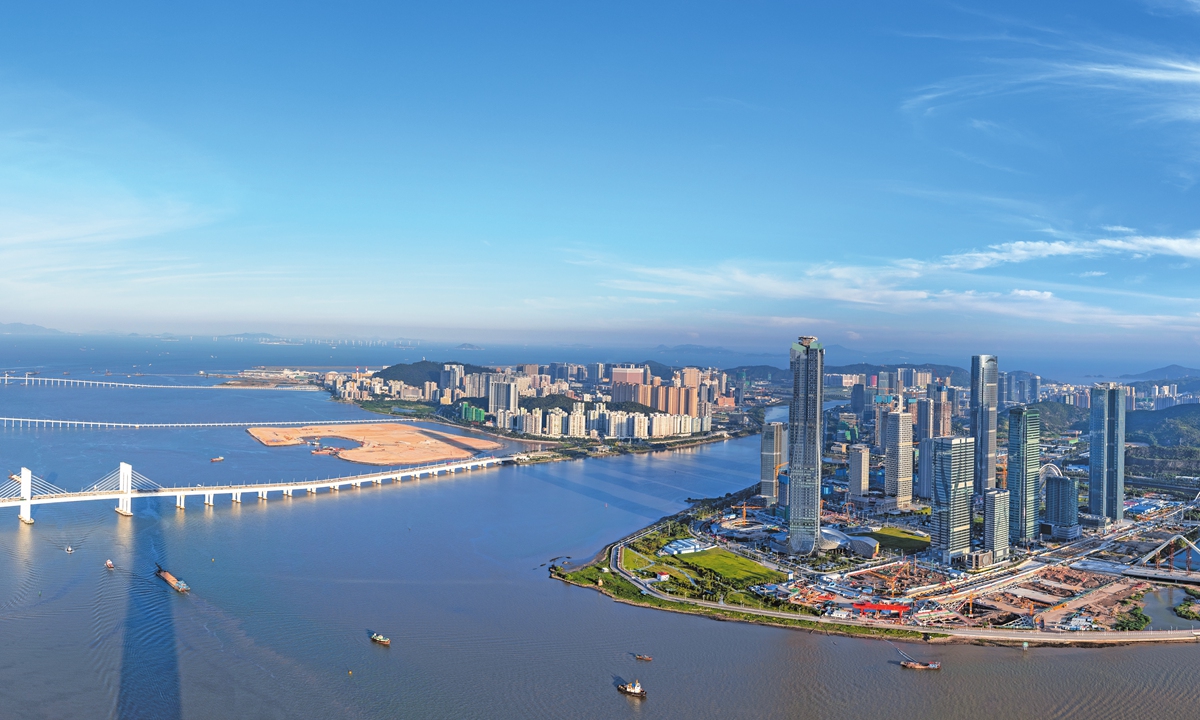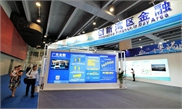
The Guangdong-Hong Kong-Macao Greater Bay Area Photos: VCG
China's top economic planner announced plans on Tuesday to support Nansha district in the Guangdong-Hong Kong-Macao Greater Bay Area (GBA) to offer a 144-hour visa-free period for people transiting through the district and a visa-free policy for cruise travel, as part of new policies to broaden the district's market access to deepen comprehensive cooperation in the GBA and expand high-standard opening-up.
Analysts said these policies will improve the area's business climate and give full play to the area's comprehensive advantages to enhance the country's economic innovation and competitiveness.
According to a circular jointly issued by the National Development and Reform Commission (NDRC), the Ministry of Commerce and the State Administration for Market Regulation, Nansha district in Guangzhou, South China's Guangdong Province, is encouraged to deepen services trade innovation by actively recruiting professionals from the Hong Kong and Macao special administrative regions, establishing a recognized list of overseas professional qualifications and releasing more policies that support cross-boundary working and lodging.
Authorities called for efforts to accelerate the development of the GBA Cross-border Wealth and Asset Management Center in Nansha.
The district is encouraged to accelerate the development of specialty finance. The Guangzhou Futures Exchange will expand the trading of more products in an orderly fashion to serve the high-quality development of the real economy, green and low-carbon development, GBA construction and the joint building of the Belt and Road Initiative, according to the document.
These measures will help break barriers to market access in the GBA and boost the accumulation of international quality resources, which will help improve the business climate in the area and give play to its comprehensive advantages, Dong Shaopeng, a senior research fellow at the Chongyang Institute for Financial Studies at the Renmin University of China, told the Global Times on Tuesday.
By carrying out pilot programs in aspects such as element flows, industrial cooperation and cross-boundary sectors, it will further expand the country's high-level opening-up and enhance China's attractiveness and competitiveness in terms of the "bringing in" and "going global" strategies, Dong said.
Coordinated development with the Chinese mainland will also foster new growth drivers for Hong Kong and Macao, while helping more enterprises in the GBA explore overseas markets through the two regions, Dong said, noting that there are great opportunities for cities within the area to conduct economic cooperation in fields including finance, professional services, logistics and sci-tech innovation.
A center for boosting the application of internationally advanced technologies will be established in Nansha to meet the needs of key projects, media reports said. A set of technology application and evaluation standards will be developed.
New business models and capital cooperation models will be developed to promote key technology breakthroughs, and innovative application scenarios will be explored to boost market application of advanced technologies, according to the circular.
Noel Shih, chairman of the Young Democratic Alliance for the Betterment and Progress of Hong Kong and newly elected district councilor, said as he expressed full confidence in the prospects of Hong Kong thanks to its open market economy, abundant talent resources and policy support through the "One Country, Two Systems" principle.
"The Hong Kong government should continue to strengthen exchanges and cooperation within the Chinese mainland to expand growth potential and opportunities for the city. Especially, Hong Kong can give play to its unique role in the GBA and strengthen cooperation with neighboring cities to boost regional integration," Shih told the Global Times.



